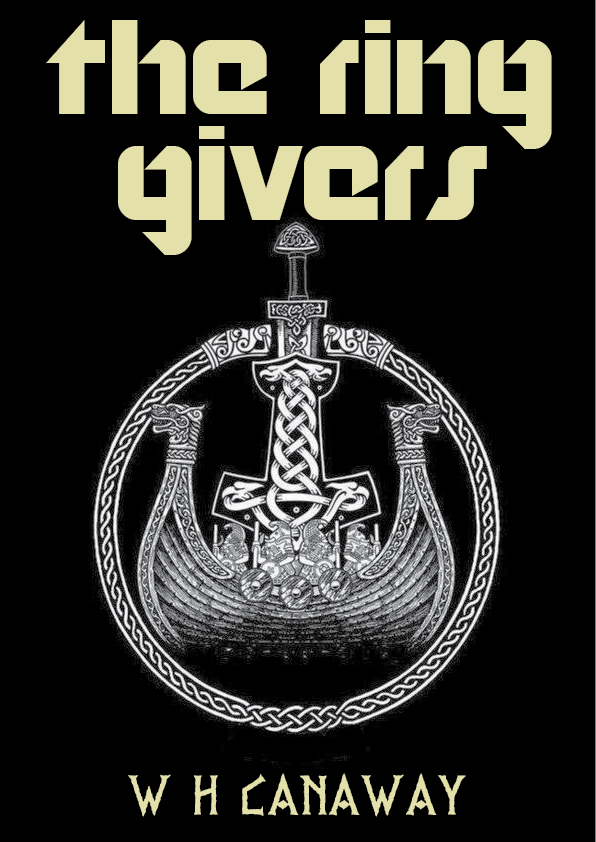
The Ring Givers were rulers of the Heroic Age, when the basic social ideas were those of the duty of loyalty and of revenge. This novel tells simply and excitingly the story of one of the most splendid and terrible periods of history, when the remote forbears of the English were still largely in Scandinavia or North West Europe, although the invasion of the Angles, Saxons and Jutes had already started. This is the story of a man who may or may not have existed, Beowulf the Great, known as the hero of the greatest of all Old English epics but whose deeds are here combined with those of Rolf Karaki and other figures of the 6th Century.
Beowulf lived in a predatory world, presented here in all its greatness and horror. It was great because its stern code often called out the best in men: but the twin over riding duties caused strange and terrible conflicts, leading to incest, witchcraft and murder of kinsfolk.
Gold was the need of the Ring Giver and the power of the vast gold hoard king Froda, which had an uncanny influence on men's fates, binds together the mythical, historical and some fictitious elements in this book, in an attempt to bring the Heroic Age to life. It was clear that the old ideas and aspirations were growing inadequate; and Beowulf, seeing clearly though belatedly that peace was best, was forced into war, simply to live up to the ideals of the Ring Giver.
The question he posed was 'How can a man be true to himself if he has to break that faith in order to be true to his people?' and Beowulf's tragedy was that the answer to the question has already been given, over five hundred years before, on Calvary.
W.H. Canaway was born in 1925 in Altrincham, Cheshire. He was educated at Altrincham Grammar School and the University College of North Wales, Bangor, where he was awarded with a B.A. and M.A. degrees. He served in the 8th Army intelligence in North Africa and Italy during the latter part of the Second World War, before coming home to lecture at Stafford Technical College. After ten years of this, he committed himself to full-time writing. He wrote fifteen novels, including Sammy Going South, a book that was translated into a dozen languages and was made the Royal Command Film Performance of 1963. He was also a keen angler and wrote two highly regarded fishing books, as well as many articles for The Fishing Gazette. However, it is probably as a screenwriter that he is best remembered - The Ipcress File (starring a young Michael Caine in 1965) being amongst his credits, as well as TV series such as Brendon Chase and Dan, Badger and all the Coal. He died on 22nd May 1988, whilst still working on a film version of an earlier work, A Declaration of Independence.
Books by W H Canaway















